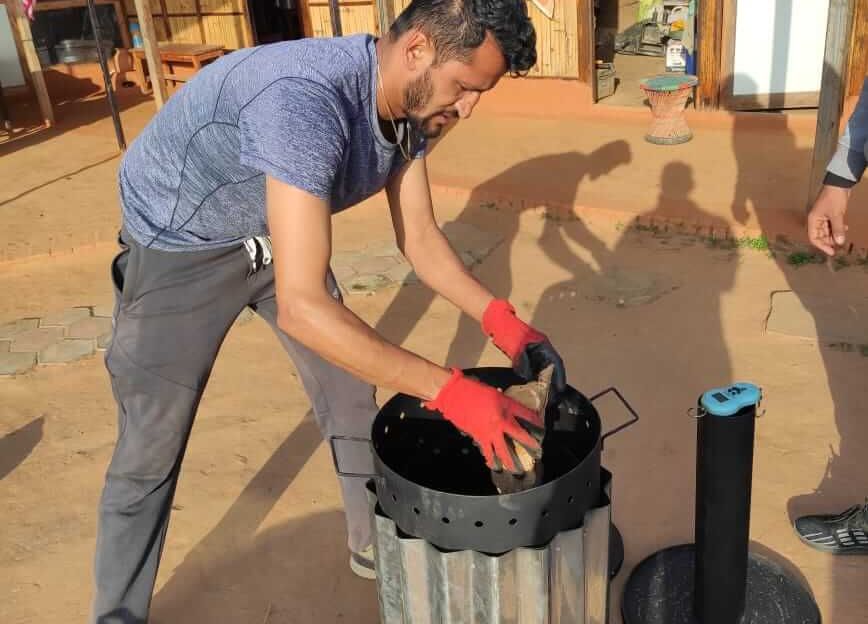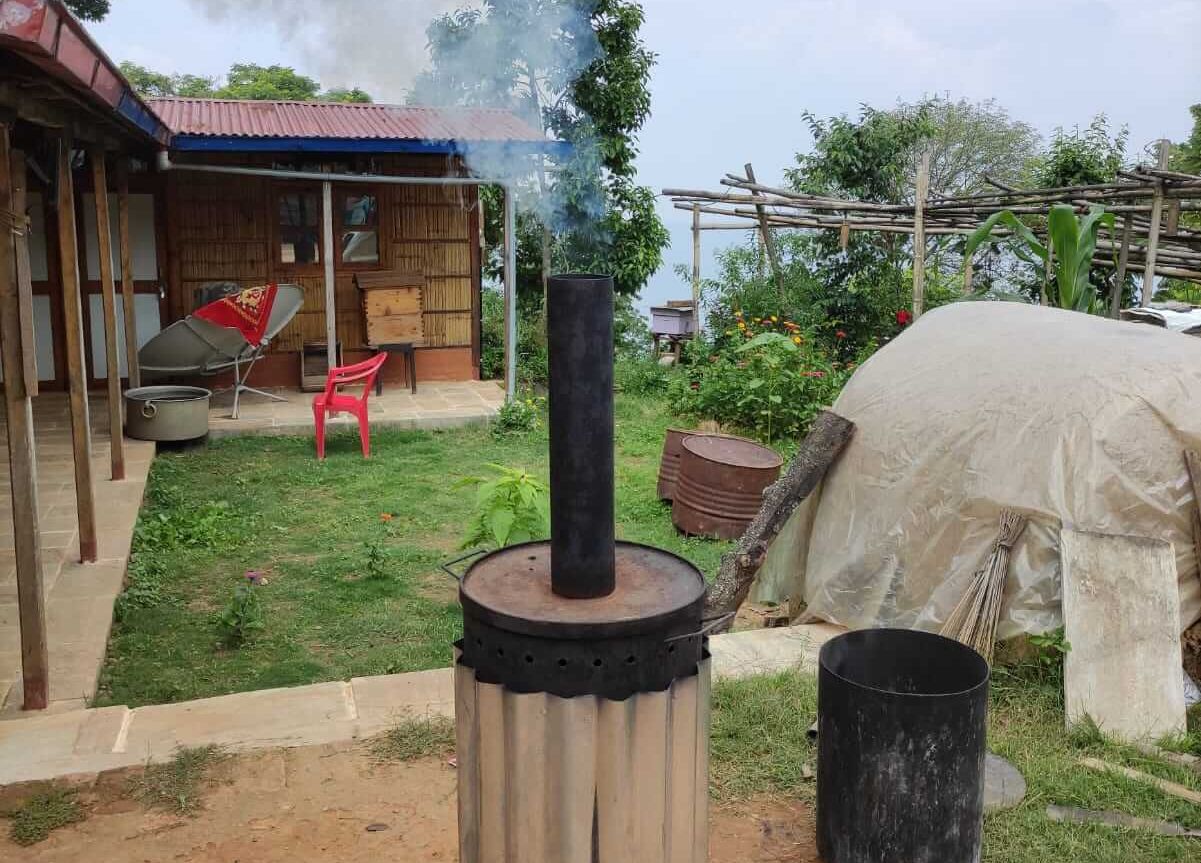Project Overview
FabLab Nepal is thrilled to work together with EWB Ireland to help develop a portable, affordable, easily built retort kiln to facilitate efficient biochar production to increase crop yields for smallholder farmers in Nepal. This design for the retort biochar kiln was designed by the Where There Is No Engineer (WTINE) 2016 design challenge winners Farm Social. With the help of this design, we will be able to produce biochar from different biomass feedstocks. Through this project, we aim to give different Nepali communities the tools and understanding to produce biochar safely and efficiently.


Project Activities:
Biochar is a carbon-rich product obtained from the thermochemical conversion of biomass in an oxygen-limited environment. It is a charcoal-like substance that’s made from agricultural and forestry wastes in a controlled process. These processes include slow pyrolysis, fast pyrolysis, gasification, and hydrothermal carbonization. Each process helps produce a different amount of biochar at different heating rates. The main purpose of such productions is to address the global challenge of undernourishment and food security, by developing a novel biochar production technology to increase crop yields for smallholder farmers in Nepal.
As part of the project “Smallholder Biochar Kiln Project Nepal”, the project team designed a biochar kiln that could be manufactured using resources available in any local market. This kiln has two chambers: an inner retort chamber 25-litre drum that sits inside the outer retort chamber 60-litre drum. A chimney stack is attached to the outer drum’s lid, to provide an air draft. This design of the kiln which was provided by EWB Ireland was analysed by the FabLab Team and further evaluated and documented the components, materials, and fabrication processes needed to construct a biochar kiln. Following the evaluation and documentation of the design, the fabrication process for the biochar kiln was chosen. This design of the kiln was also backed by the experiences of Eoin and Daniel from Farm Social, which also helped us in estimating the total manufacturing cost.
The FabLab team then prepared a preliminary budget sheet which was based on the local level market research that was carried out by the team in order to study locally available resources. This budget sheet incorporated an estimated cost for materials, components, and an overall budget to manufacture the kiln. The team also discussed the plan for farmer training sessions and pilot testing of kilns with Shree Krishna Dhital of Sanskriti Farms who gave valuable input to the team. With his connection with local cooperatives based on agriculture development, the team will be able to identify the beneficiaries. Apart from this, the final budget sheet was then prepared with reference to the preliminary budget sheet.
Much of the agricultural benefits of biochar application may be attributed to the increased water retention capacity of the biochar mixed soil. Both activated carbon and biochar have a high carbon content, but biochar has a higher ash content. High ash content biochar has been demonstrated to have a positive impact on plant growth depending on the soil type. When nitrogen-rich fertiliser is applied to a biochar enriched soil, the high Carbon/Nitrogen ratio can boost microorganisms to decompose soil organic matter. This can result in increased fertiliser (Nitrogen) use efficiency. Studies show that biochar enriched soil has a bigger effect on plant growth in nutrient-poor degraded soils than infertile soils. Neutral and acidic soils show the best improvement in crop productivity with biochar.








